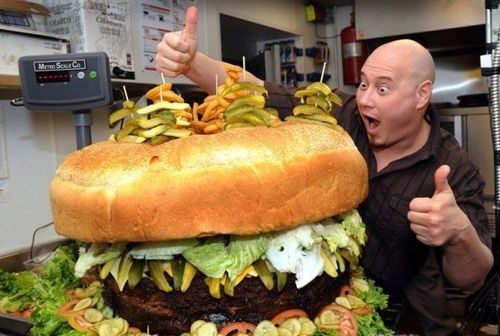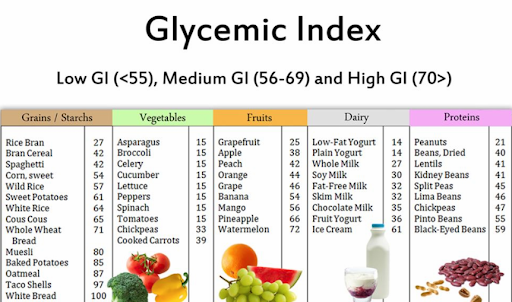Stubborn fat and bad surprises on the scale? Struggling to lose weight?
Ever tried to losing some of those love handles and despite doing everything right your body seems like it just doesn’t want to give up on those extra pounds?
Well … Many of us have been there. And let me tell you – for every problem there is a solution. And I happen to have six of those!
Here’s six reasons (and solutions!) for weight gain and stubborn fat depots you probably didn’t consider yet:
- Your insulin levels might be causing your body to be in fat storage mode
Why?
Insulin is the hormone that tells your body to pull glucose out of your bloodstream and transport it to your muscles, fat and liver.
Being overweight (or suffering from prediabetes/type two diabetes/hyperthyroidism) can cause your cells to have issues recognizing insulin, which leads to your pancreas producing more and more – until your cells finally respond and absorb the glucose.
Those high insulin levels make your body stay in fat storage mode and sabotage your weight loss journey; all while messing up your pancreas, making it permanently unable to keep your blood sugar levels in check, which can, eventually, lead to prediabetes or worse.
How to fix this:
The quickest and easiest fix is to increase your daily physical activity (your muscles will respond better to the produced insulin when they’re being used) by simply walking more instead of using the car, public transport and elevators – you’ll be surprised how easy it is to double your step amount and how fun it even can be.
Even more important is to switch up your diet a little; avoid refined carbs and added sugars. Of course you can treat yourself every now and then, but try to keep it as low as possible for a few days first. Also keeping your blood sugar levels steady by consuming foods with a lower glycemic index is a good way to go
2. Stress as a “Weight Loss Killer”
Why?
The more stressed you are by work, household, relationships and other factors, the more weight you usually gain – a recent study on 3872 women in a time span of 20 years confirms this trend.
What’s happening though?
Basically, stress triggers certain hormonal reactions within your body; it produces the hormones cortisol and ghrelin, which usually lead to a bigger appetite and food cravings – carbs! – While oppressing leptin production. Leptin is the hormone that tells your brain you’re “full” and need to stop eating. Furthermore, stress will most likely cause your quality of sleep to reduce drastically , which will mess with your hormones even more.
What a perfect set-up for weight gain and plateaus!
Don’t stress out now, cause here’s what you can do:
Changing your whole environment including your stressed out boss and your children/partner getting on your last nerves every now and then might be a little too radical – but here’s a quote for you I want you to memorize and think about:
“Nothing in the world can bother you as much as your own mind. In fact others seem to be bothering you, but it’s not others, it’s your own mind – change your perception of things and you will change your reality”
Also you should consider such things as meditation, sports, positive affirmations and creating a daily structure that works for you.
And what about a proper bed time routine? Putting your electronics away an hour before bedtime can make a huge difference.
New research also shows that shutting out all light can help with both sleep and metabolism by reducing insulin levels.
3. Allergy pills might cause those extra pounds to stay
Why?
Many people suffer from seasonal allergies and are dependent on antihistamine pills – which might cause you to eat more. Also some antihistamines might cause drowsiness, leading to less energy and movement throughout the day.
What to do:
Talk to your allergist! Many medications are known for weight gain and usually there are alternative treatment methods such as allergy shots, nasal antihistamines and nasal steroid sprays.
Also fighting the allergy itself by using HEPA filters and keeping the triggers away as much as possible, often leads to a decrease of need for allergy medication.
4. Your portions are probably bigger than you think – and they keep on getting bigger
Why?
Well … did you know that the FDA standards of serving sizes are measured by how much people actually eat and not how much they SHOULD eat? And that those measures get adapted each year?
For example a serving of ice cream went from ½ cup to 2/3 cup within the last year.
And us all are getting used to that: our portion sizes at home are slowly getting bigger; and so do our “here and there” snacks.
What might seem as a little increase over years will eventually add up and cause slow weight gain. Because “just” 50 calories extra a day are 5.5 pounds extra a year.

How to fight this issue:
Listen to your gut – literally.
Stop relying on the measurements a packaging or food agency gives you and listen to your own body. After you eat it take around 20 minutes for your body to produce the right hormones and send them to your brain to tell it you are full.
So next time start out with having a smaller portion size than usual – and you’ll probably be just as fine with it; after giving your body some time to process everything.
Do a reality check.
Take your “usual” amount of rice, cereals, sugar or whatever and put it on a scale or measuring cup – chances are high that you get a rather unpleasant surprise. What you thought to be one cup the past few years might actually be two or even three cups.
4. Timing is key
Why?
A study published in 2017 by The American Journal of Clinical Nutrition concluded that there’s a correlation between consumption of food during the circadian evening (the “circadian rhythm” is a natural internal process that’s responsible for your sleep-wake cycle through hormonal responses) and/or night and “bad” body composition. To be precise it showed that students who ate closer to bedtime and melatonin (sleep hormone) release usually had a higher body fat percentage than others.
So even if you’re not eating more, late night snacking or dining might account for the extra pounds you are carrying or building. Maybe you did some changes recently such as starting to watch a TV series at night (and of course snacks are a part of this) or working later as usual and therefore eating later.
Want a fix?
Hold yourself accountable and check on yourself! Put a piece of paper on your fridge or elsewhere and write everything down, that you consume AFTER dinner – how much of it and how it makes you feel.
Another hack: Fish oil! A tablespoon after your last big meal is not only healthy but also decreases hunger.
5. your “healthy” food is high in calories
Why?
Did you know that 28 grams of walnuts have roughly 200 calories? Or that other “diet friendly” considered foods such as avocados, olive oil, dates or “protein bars” can be surprisingly high in calories?
But eating “healthy” foods often comes with the bias where we think we can eat more of it without it causing any “damage”. But in that case a calorie is still a calorie.
What to do:
Never eat when you are distracted (by the TV or work for example) – it will disconnect you from feelings like hunger and satiety.
Also it might come in handy to use tracking apps on your Smartphone such as FDDB, MyFitnessPal or Weight Watchers App.
Those allow you to enter/scan a product and get all the informations you need on calories, macros and other interesting stuff – all while tracking your meals and snacks and providing you with a daily summary.
6. Your age.
Why?
The older you get, the harder it is usually to stay in shape. That’s due to many factors:
1. Your basal resting metabolism slows down – at rest, your body burns less energy as when you were in your 20ies
2. You’re likely to get less active when getting older
3. You’re likely to get tired quicker
4. You’re losing muscle mass quicker – muscle tissue burns more calories than fat
How to make your body work in your favor again:
The best thing
you could possibly do for your health and loosing/maintaining your weight is to
build up your calorie-burning muscle by doing weight training one to three times
a week. On top of that, two cardio sessions of 30 minutes each.
Here’s another tip: Your body needs energy to digest. Proteins are harder to
digest than carbohydrates – replacing some carbohydrates with proteins will
also add to the overall amount of calories burned throughout the day.
So go fill your plate with some beans, chicken, shrimp, fish or shrimp!



https://pharmbig24.com/# accutane mexican pharmacy
Online medicine home delivery: world pharmacy india – Online medicine home delivery
wellbutrin sr pharmacy [url=https://pharmbig24.online/#]capsule online pharmacy[/url] mutual of omaha rx pharmacy
mexican pharmaceuticals online: mexican border pharmacies shipping to usa – buying prescription drugs in mexico online
http://mexicopharmacy.cheap/# best online pharmacies in mexico
generic cialis best pharmacy [url=http://pharmbig24.com/#]flagyl online pharmacy[/url] viagra in indian pharmacy
Eldepryl: low dose naltrexone online pharmacy – nizoral shampoo uk pharmacy
medicine online shopping [url=https://pharmbig24.online/#]plavix pharmacy coupon[/url] percocet indian pharmacy
http://mexicopharmacy.cheap/# mexican pharmaceuticals online
meloxicam pharmacy [url=http://pharmbig24.com/#]online pharmacy nizoral[/url] uk pharmacy no prescription
pharmacy website india: п»їlegitimate online pharmacies india – indianpharmacy com
https://indianpharmacy.company/# п»їlegitimate online pharmacies india
mexican rx online [url=http://mexicopharmacy.cheap/#]purple pharmacy mexico price list[/url] mexican drugstore online
mexican mail order pharmacies [url=https://mexicopharmacy.cheap/#]pharmacies in mexico that ship to usa[/url] buying prescription drugs in mexico
https://pharmbig24.com/# clomid mexico pharmacy